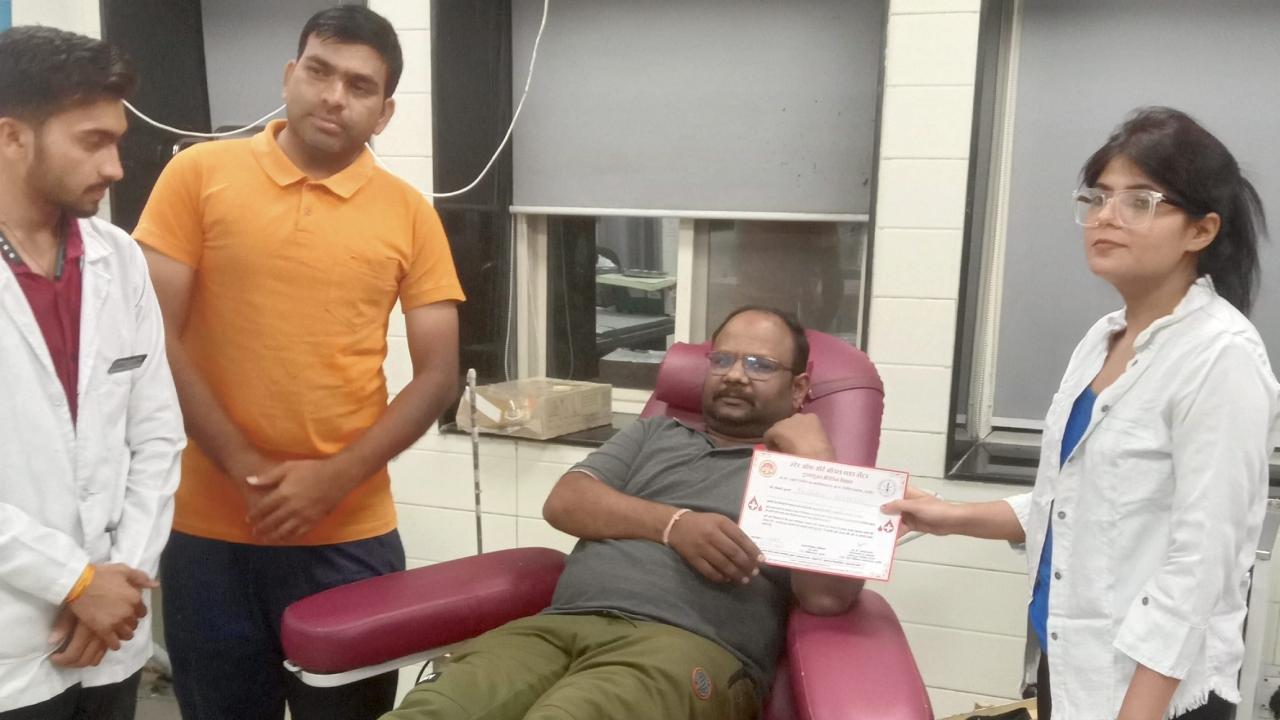Home / News / India News / Article /
MH man with rare 'Bombay' blood group travels to Indore to save woman's life
Updated On: 29 May, 2024 04:36 PM IST | Indore | mid-day online correspondent
'Bombay' blood group, said to be discovered in 1952, is rare in which there is the absence of H antigen and presence of anti-H antibodies. Patients carrying this blood can receive transfusion only from a person from within this group

Ravindra Ashtekar receives certificate after donating blood of a very rare `Bombay` group at a hospital in Indore on Wednesday. Pic/ PTI
Ravindra Ashtekar with the rare 'Bombay' blood group travelled from Shirdi in Maharashtra to Madhya Pradesh to help save the life of a 30-year-old woman who was critically ill, reported PTI.
Ashtekar, 36, runs a wholesale flower business in Shirdi. He reached Indore on May 25 and donated blood to the woman, admitted to a hospital there following which her condition has improved, said the PTI report.



